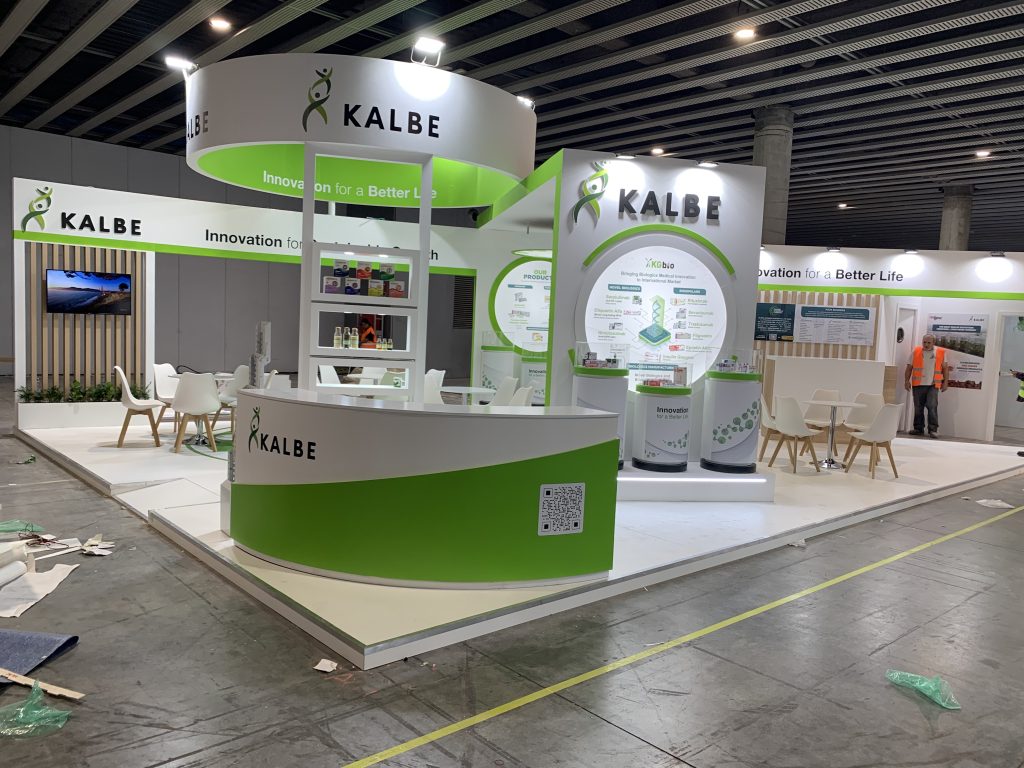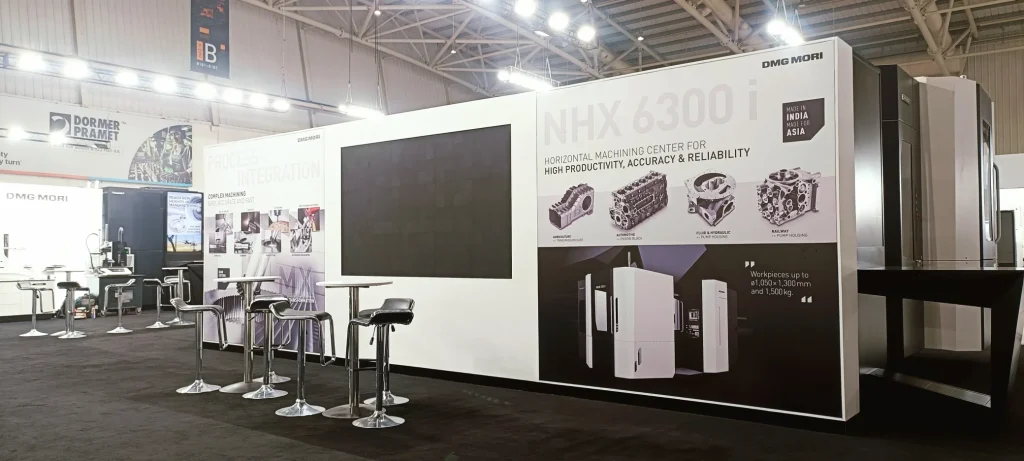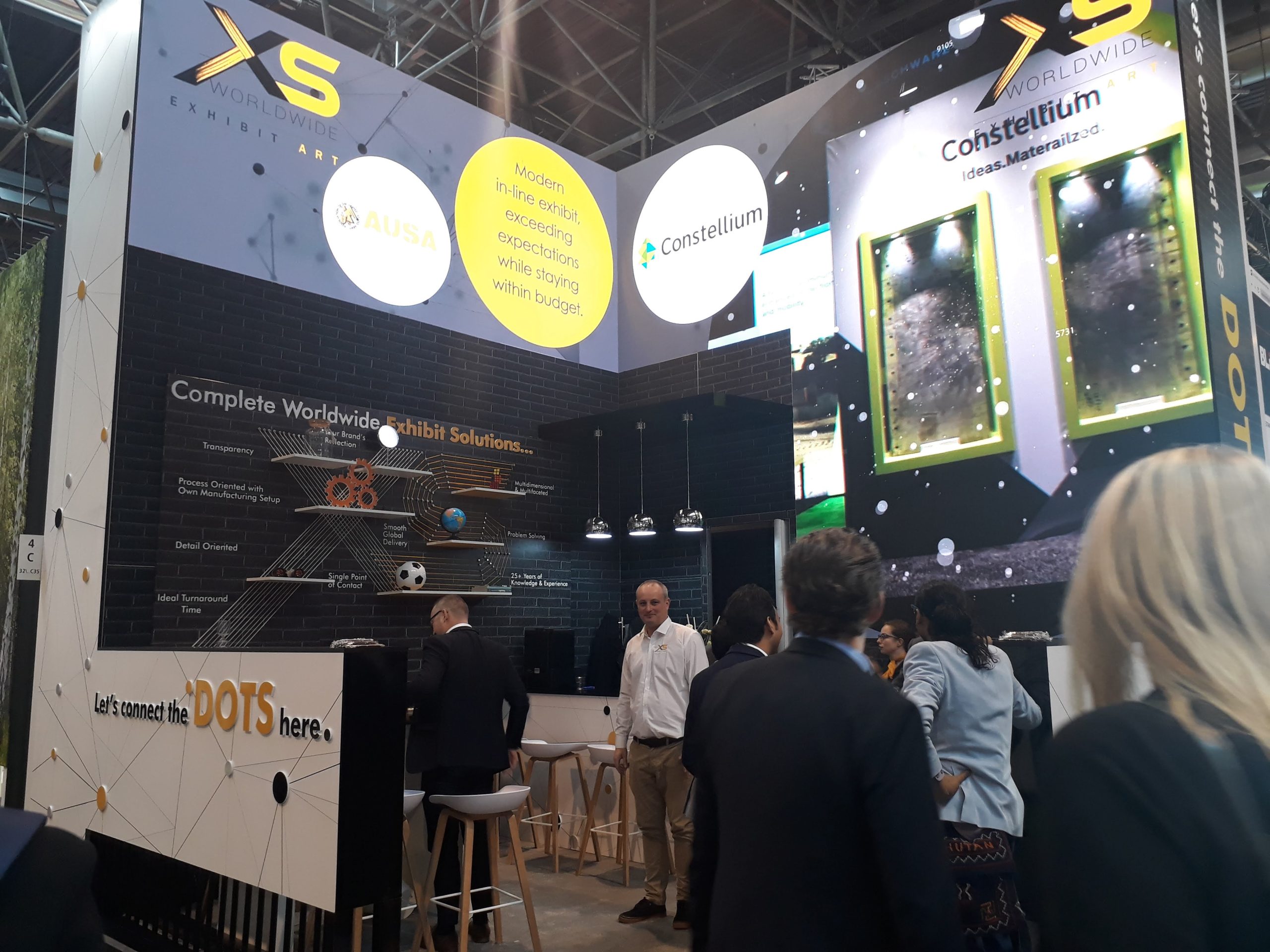
Introduction:
One size does not fit all when it comes to trade show booth design. Exhibitors across various industries need to tailor their booth layouts, messaging, and presentations to resonate with their target audience and effectively showcase their products or services.
In this blog, we’ll explore the importance of designing trade show booths tailored to specific niches and highlight key considerations for exhibitors in different industries.
1. Understanding Industry Dynamics:
- Each industry has its unique characteristics, trends, and audience preferences that influence trade show booth design.
- Exhibitors need to conduct thorough research to understand the needs, pain points, and purchasing behavior of their target audience within their industry niche.
- By gaining insights into industry dynamics, exhibitors can design booths that effectively communicate their value proposition and address the specific challenges and priorities of their target market.
2. Visual Branding and Messaging:
- Visual branding plays a crucial role in capturing the attention of attendees and conveying the identity and values of the exhibiting company.
- Exhibitors should align their booth design, color schemes, graphics, and signage with their brand identity and messaging to create a cohesive and memorable experience.
- Industry-specific imagery, terminology, and branding elements help exhibitors establish credibility and relevance within their niche market, resonating with attendees and reinforcing brand recognition.
3. Product Showcase and Demonstrations:
- The primary objective of many trade show booths is to showcase products or services and demonstrate their features, benefits, and applications.
- Exhibitors should prioritize highlighting their key products or innovations that are most relevant and impactful to their target audience within their industry niche.
- Interactive product demonstrations, live presentations, and hands-on experiences enable attendees to engage with the products firsthand, fostering understanding, interest, and desire to purchase.
4. Networking and Relationship Building:
- Trade shows offer valuable opportunities for networking and relationship building within industry-specific communities.
- Exhibitors should design their booths to facilitate meaningful interactions, networking opportunities, and relationship-building activities tailored to the needs and preferences of their target audience.
- Industry-specific networking events, roundtable discussions, and expert panels provide platforms for exhibitors to connect with industry peers, thought leaders, and potential customers, fostering collaboration and knowledge exchange.
5. Industry Regulations and Compliance:
- Certain industries are subject to regulatory requirements, safety standards, and compliance guidelines that impact trade show booth design and operations.
- Exhibitors must ensure that their booth designs and promotional materials comply with industry regulations, product labeling requirements, and health and safety protocols.
- Industry-specific certifications, accreditations, and quality standards can enhance exhibitors’ credibility and demonstrate their commitment to compliance and ethical business practices.
6. Industry-Specific Layout and Booth Features:
- Different industries may require distinct booth layouts and features to effectively showcase their products or services.
- For example, industries such as technology or automotive may require larger, open spaces to accommodate demonstrations and displays of complex products.
- Conversely, industries like healthcare or pharmaceuticals may prioritize privacy and confidentiality, necessitating enclosed meeting areas or consultation rooms within the booth.
- Understanding the unique requirements of the industry niche allows exhibitors to design booth layouts that optimize space utilization and create an inviting environment for attendees.
7. Customized Engagement Strategies:
- Industry-specific engagement strategies are essential for capturing the interest and attention of attendees within a particular niche.
- Exhibitors should tailor their engagement tactics to resonate with the preferences and pain points of their target audience.
- For example, industries with technical products may benefit from in-depth technical discussions or product demonstrations, while industries focused on lifestyle or consumer goods may prioritize experiential activations or product sampling.
- Customized engagement strategies enhance attendee interaction and facilitate deeper connections between exhibitors and potential customers within their industry niche.
8. Industry Trends and Innovations:
- Staying abreast of industry trends and innovations is crucial for exhibitors to remain competitive and relevant within their niche.
- Trade show booths can serve as platforms for showcasing industry trends, product innovations, and thought leadership within a specific sector.
- Incorporating the latest industry trends, such as sustainability initiatives, digital transformation, or emerging technologies, into booth design and messaging demonstrates exhibitors’ commitment to staying at the forefront of their industry.
9. Targeted Marketing and Outreach:
- Industry-specific marketing and outreach efforts are essential for driving qualified traffic to trade show booths and maximizing ROI.
- Exhibitors should leverage industry-specific channels, publications, and associations to promote their participation in trade shows and attract relevant attendees.
- Targeted pre-show marketing campaigns, email outreach, and social media promotions tailored to the interests and needs of the industry niche help generate buzz and drive attendance at the booth.
- By focusing their marketing efforts on industry-specific audiences, exhibitors can increase the likelihood of attracting qualified leads and generating meaningful interactions at trade shows.
10. Continuous Improvement and Adaptation:
- The landscape of every industry is constantly evolving, requiring exhibitors to adapt and innovate their trade show booth strategies accordingly.
- Exhibitors should continuously evaluate feedback, analyze performance metrics, and monitor industry trends to identify areas for improvement and innovation.
- By embracing a culture of continuous improvement and adaptation, exhibitors can stay agile and responsive to changing market dynamics, ensuring that their trade show booths remain relevant and effective within their industry niche.
Conclusion:
Designing trade show booths tailored to specific industries requires a holistic understanding of industry dynamics, audience preferences, and market trends. By customizing booth layouts, engagement strategies, marketing efforts, and outreach initiatives to resonate with the unique needs and priorities of their industry niche, exhibitors can create impactful and successful trade show experiences.
By staying attuned to industry trends, embracing innovation, and continuously refining their approach, exhibitors can position themselves as leaders within their respective industries and drive long-term business growth and success.


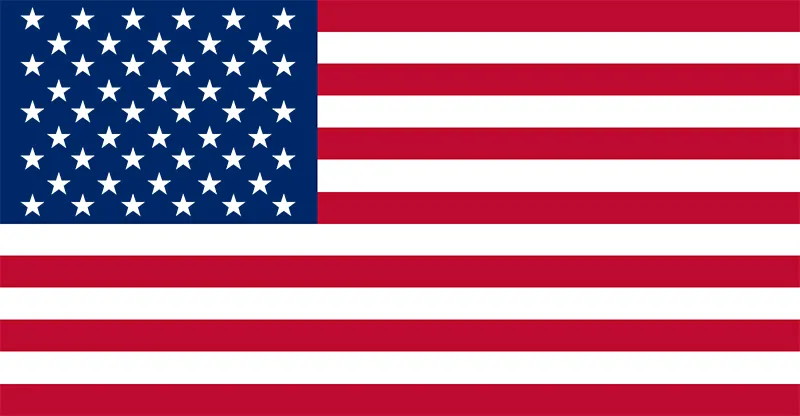 US
US
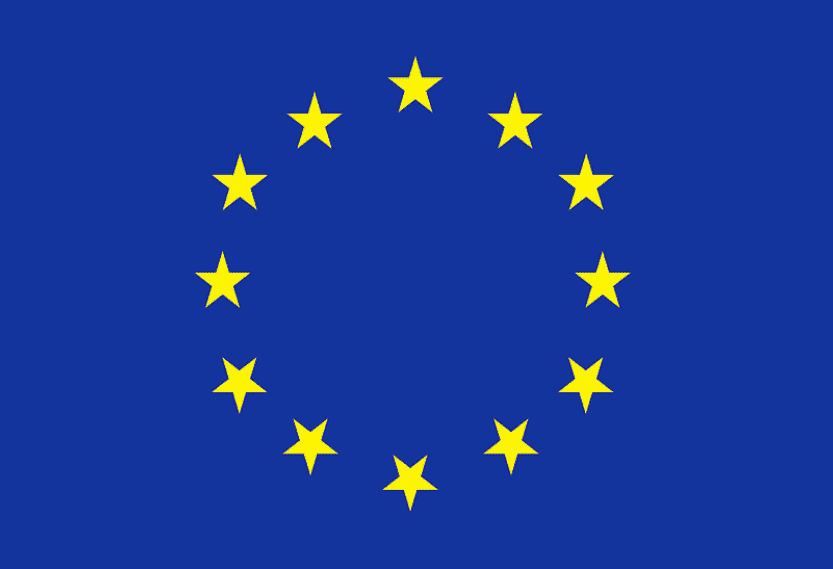 EU
EU
